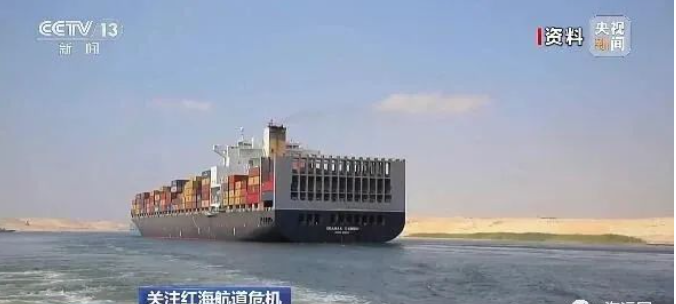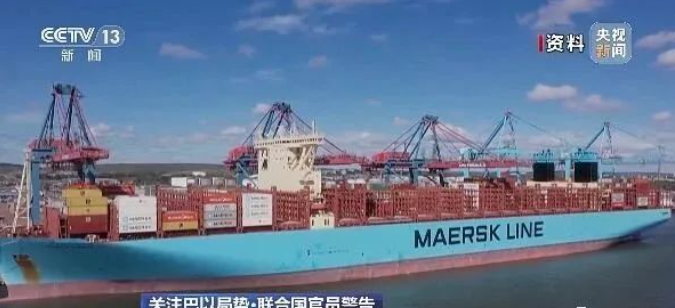Since mid November, the Houthi armed forces have been carrying out attacks on ships related to Israel in the Red Sea. At least 13 container shipping companies have successively announced the suspension of navigation in the Red Sea and nearby waters or detours around the Cape of Good Hope. It is estimated that the total value of goods carried by ships departing from the Red Sea route has exceeded 80 billion US dollars.

According to tracking statistics from a certain shipping big data platform in the industry, as of the 19th, the number of container ships passing through the Mand Strait (the gateway to the Suez Canal, one of the world's most important waterways) located at the junction of the Red Sea and the Gulf of Aden, has dropped to zero, indicating that the key channel into the Suez Canal has been paralyzed.
According to data provided by logistics company Dexun, 121 container ships have given up entering the Red Sea and Suez Canal and instead opted to detour around the Cape of Good Hope in Africa, resulting in an increase of about 6000 nautical miles and a possible extension of 1-2 weeks of sailing time. The company expects more ships to join the detour route in the future. According to a new report by Consumer News and Business Channel in the United States, the total value of goods carried by these ships that have been diverted from the Red Sea route exceeds $80 billion.
In addition, according to multiple foreign media reports, for ships still choosing to sail in the Red Sea, the insurance cost jumped from about 0.1% to 0.2% of the hull value this week to 0.5%, meaning that the insurance cost per voyage for a ship worth 100 million US dollars reached 500000 US dollars. Changing the route means higher fuel costs and delayed arrival of goods, while continuing to travel through the Red Sea carries greater safety risks and insurance costs, posing a dilemma for shipping and logistics companies.
UN officials have stated that if the crisis in the Red Sea route continues, it may lead to an increase in commodity prices, which will be borne by consumers.

According to tracking statistics from a certain shipping big data platform in the industry, as of the 19th, the number of container ships passing through the Mand Strait (the gateway to the Suez Canal, one of the world's most important waterways) located at the junction of the Red Sea and the Gulf of Aden, has dropped to zero, indicating that the key channel into the Suez Canal has been paralyzed.
According to data provided by logistics company Dexun, 121 container ships have given up entering the Red Sea and Suez Canal and instead opted to detour around the Cape of Good Hope in Africa, resulting in an increase of about 6000 nautical miles and a possible extension of 1-2 weeks of sailing time. The company expects more ships to join the detour route in the future. According to a new report by Consumer News and Business Channel in the United States, the total value of goods carried by these ships that have been diverted from the Red Sea route exceeds $80 billion.
In addition, according to multiple foreign media reports, for ships still choosing to sail in the Red Sea, the insurance cost jumped from about 0.1% to 0.2% of the hull value this week to 0.5%, meaning that the insurance cost per voyage for a ship worth 100 million US dollars reached 500000 US dollars. Changing the route means higher fuel costs and delayed arrival of goods, while continuing to travel through the Red Sea carries greater safety risks and insurance costs, posing a dilemma for shipping and logistics companies.
UN officials have stated that if the crisis in the Red Sea route continues, it may lead to an increase in commodity prices, which will be borne by consumers.
MORE>>
MORE>>
MORE>>
MORE>>
